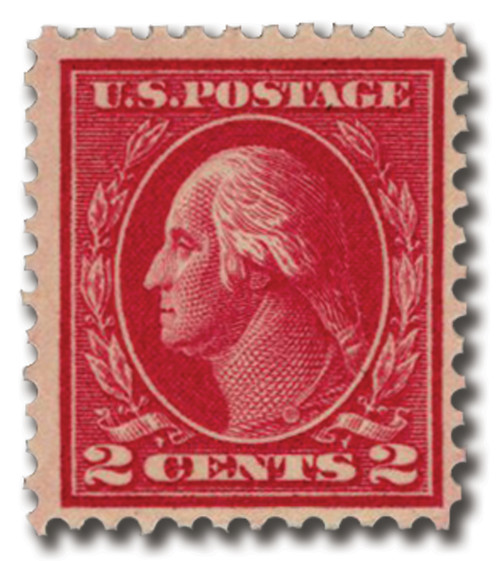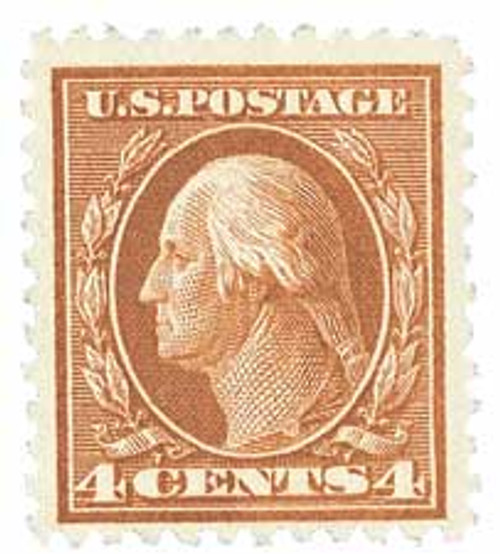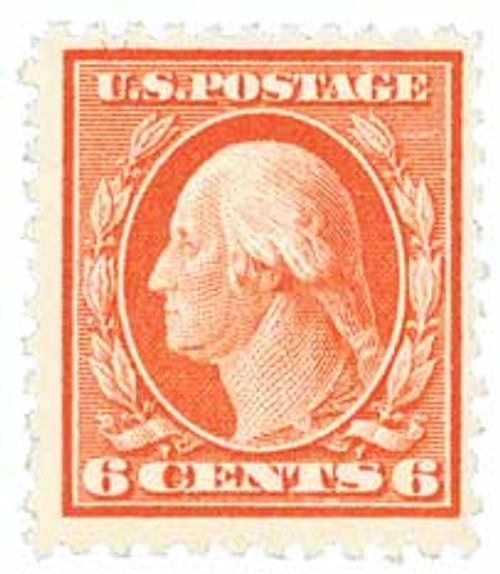
# 508 PB - 1917 8c Franklin, olive bister, perf 11
U.S. #508
1917-19 8¢ Franklin
Like similar denominations, the 8¢ Franklin had no specific role. It was primarily used for Parcel Post and to make up the differences in shipping heavier letters and packages overseas to help with the war effort. More #508 stamps were issued than all previous 8¢ denominated stamps combined, due to the high demand for stamps in general during this time period.
Flat Plate, Perf. 11
The Bureau of Engraving and Printing continued to use the 10 gauge perforation machines on flat plate stamp sheets even after 11 perf. stamps proved successful. In an effort to save money, they used the perf. 10 wheels until they wore out. Beginning in early 1917, stamps produced on flat plate presses were given 11 gauge perfs.
That marked the beginning of the flat plate perforated 11 Series of 1917-19 stamps. Perf. 12 had proven too flimsy, and perf. 10 was too difficult to separate without damaging the stamp, so perf. 11 became a satisfactory solution.
8¢ Franklin
Issue Date: March 1917
Category: Definitive
Printed by: Bureau of Engraving and Printing
Printing Method: Flat plate, using plates of 400 with four panes of 100
Watermark: None
Perforation: 11
Color: Olive bister
Water-activated Gum
U.S. #508
1917-19 8¢ Franklin
Like similar denominations, the 8¢ Franklin had no specific role. It was primarily used for Parcel Post and to make up the differences in shipping heavier letters and packages overseas to help with the war effort. More #508 stamps were issued than all previous 8¢ denominated stamps combined, due to the high demand for stamps in general during this time period.
Flat Plate, Perf. 11
The Bureau of Engraving and Printing continued to use the 10 gauge perforation machines on flat plate stamp sheets even after 11 perf. stamps proved successful. In an effort to save money, they used the perf. 10 wheels until they wore out. Beginning in early 1917, stamps produced on flat plate presses were given 11 gauge perfs.
That marked the beginning of the flat plate perforated 11 Series of 1917-19 stamps. Perf. 12 had proven too flimsy, and perf. 10 was too difficult to separate without damaging the stamp, so perf. 11 became a satisfactory solution.
8¢ Franklin
Issue Date: March 1917
Category: Definitive
Printed by: Bureau of Engraving and Printing
Printing Method: Flat plate, using plates of 400 with four panes of 100
Watermark: None
Perforation: 11
Color: Olive bister
Water-activated Gum















